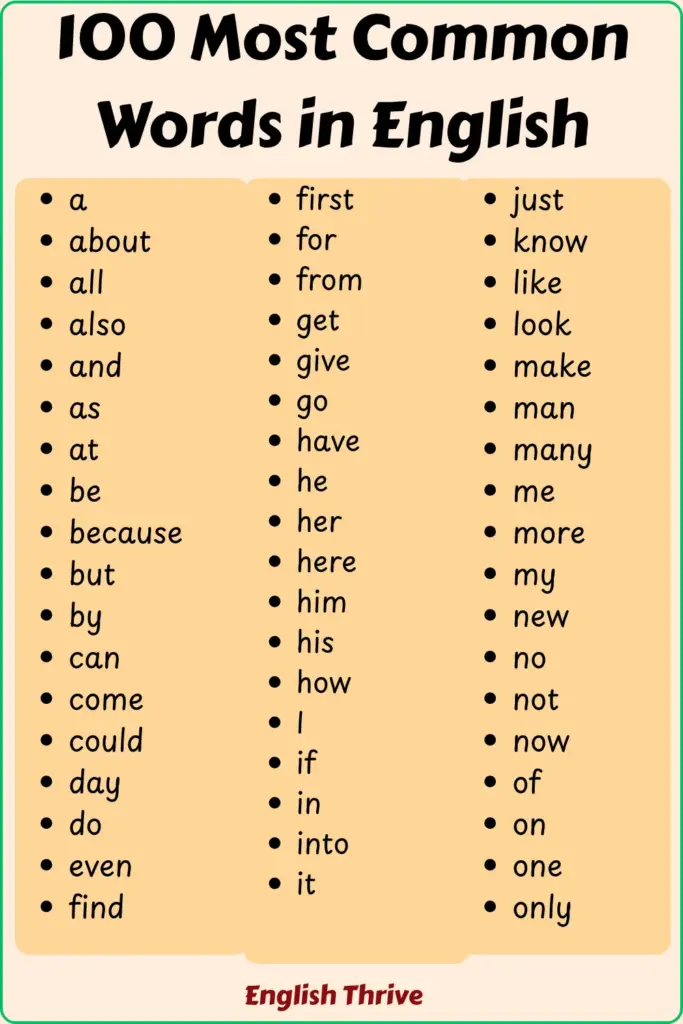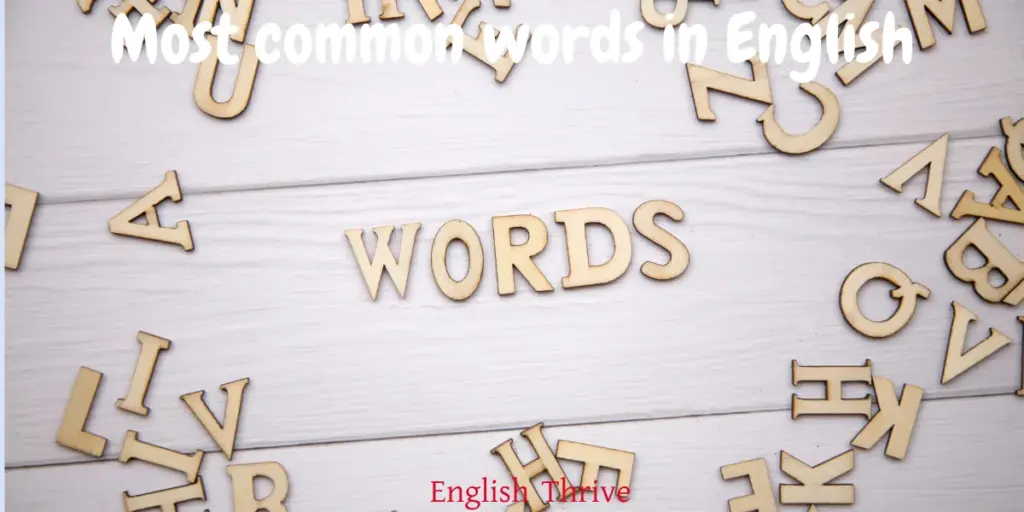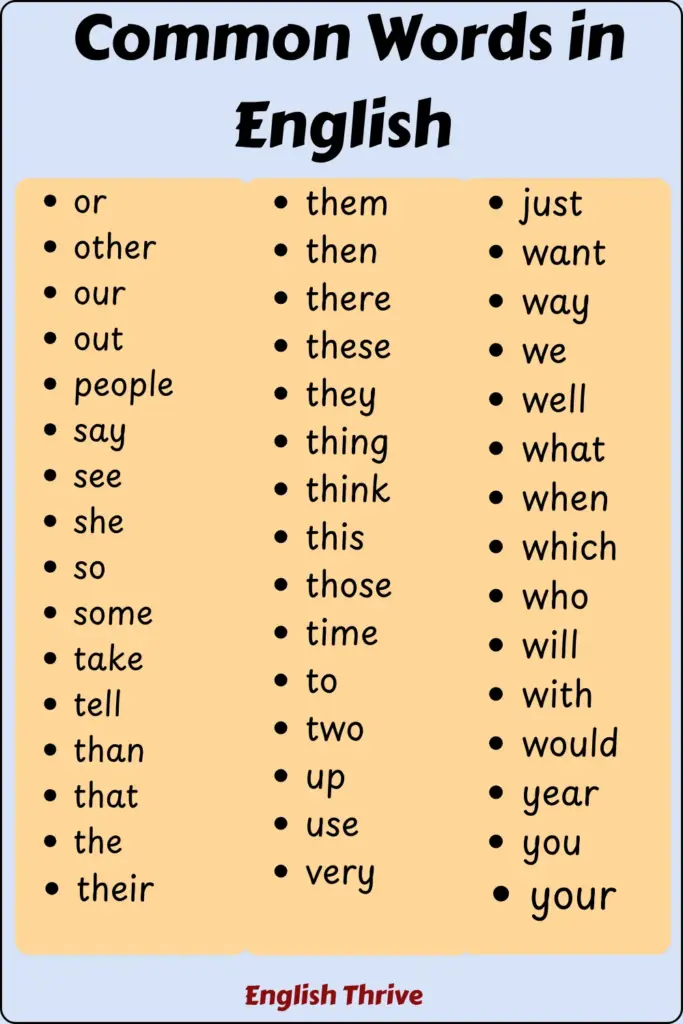Learning the 100 most common words in English is an easy way to grow your skills. These words show up in half of all English writing, so knowing them helps you speak and read with confidence.
If you are new to English, or if you teach a child, this guide will help you learn and use these words well.
100 Most Common Words in English
Contents
ToggleWhy These 100 Common English Words Matter
These small words look simple, but they are key to English. You use them in almost every sentence you speak or write.
Here are some benefits:
They help you follow daily talk.
They make reading easier.
They help you learn basic grammar.
They help you build clear sentences.
They make you feel more sure as you learn.
Young children learn these words first. This is why new English learners should start with them before moving on.
The 100 Most Common Words in English

100 Most Common Words in English
a
about
all
also
and
as
at
be
because
but
by
can
come
could
day
do
even
find
first
for
from
get
give
go
have
he
her
here
him
his
how
I
if
in
into
it
its
just
know
like
look
make
man
many
me
more
my
new
no
not
now
of
on
one
only
or
other
our
out
people
say
see
she
so
some
take
tell
than
that
the
their
them
then
there
these
they
thing
think
this
those
time
to
two
up
use
very
want
way
we
well
what
when
which
who
will
with
would
year
you
your
100 Most Common Words in English
Meanings & Simple Examples of Common Words
Pronouns
| Word | Meaning | Example |
|---|---|---|
| he | male person | He is my brother. |
| she | female person | She is a teacher. |
| they | group of people | They are playing outside. |
| we | you and others | We are going home. |
| it | object/thing | It is raining. |
Verbs (Action Words)
| Word | Meaning | Example |
|---|---|---|
| be | to exist | I want to be a doctor. |
| have | to possess | I have a book. |
| make | to create | They make cakes. |
| go | to move somewhere | We go to school. |
| get | to receive | I get a gift. |
Prepositions
| Word | Meaning | Example |
|---|---|---|
| in | inside | The cat is in the box. |
| on | touching a surface | The book is on the table. |
| at | specific place/time | Meet me at 5 PM. |
| from | the starting point | I am from India. |
| into | entering | He goes into the room. |
Conjunctions
| Word | Meaning | Example |
|---|---|---|
| and | connects items | I like tea and coffee. |
| but | contrast | She is small but strong. |
| or | choice | Tea or coffee? |
| because | reason | I stayed home because it rained. |
Learn Faster with Word Groups
Pronouns:
I, you, he, she, it, we, they, me, him, her, them, my, your, their, our, and its.
Verbs:
be, have, do, say, go, get, make, know, think, see, come, take, want, use, find, give, tell.
Prepositions:
in, on, at, to, from, into, for, with, by, up, out.
Conjunctions:
and, but, or, because, if, so, and than.
Determiners:
the, a, one, this, that, these, those, some, many, more, new.
Grouping words helps you learn them faster and use them with ease.
Common Mistakes Learners Make With These Words
1. Confusing ‘there,’ ‘their,’ and ‘they’re’
- There = place
- Their = belonging
- They’re = they are
2. Confusing ‘then’ vs ‘than’
- Then = time
- Than = comparison
3. Spelling mistakes in short words
Beginners often mix up:
- your / you’re
- its / it’s
- of / off
4. Overusing words like “very”
Instead of saying “very big,” try “huge” or “large” for better vocabulary.
Final Thoughts
Learning these 100 common words is a great way to start learning English. You will see these words in books, talks, emails, posts, and tests.
Learn these words first, and you will read and speak better right away.



